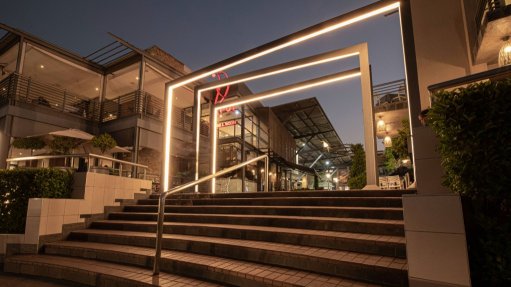Crime epidemic
In a stranger-than-fiction incident earlier this month, Transport Minister Sindisiwe Chikunga and two of her armed protectors were ambushed and robbed at gunpoint near Vosloorus, on Gauteng’s East Rand, in the wee hours of one morning. They were travelling on the N3, the arterial highway that connects Johannesburg and Durban.
But Chikunga is not the first higher-up in the South African government to fall victim to violent crime. I recall, in 2017, reading or watching shocking reportage across all major news outlets about Thabang Makwetla, South Africa’s Deputy Minister of Justice and Correctional Services at the time, having been accosted by thugs as he arrived at a Johannesburg hospital where a fellow cadre of the governing African National Congress was admitted. The criminals proceeded to bundle him and his security guards into the back of his car before driving off, dumping the trio in the middle of nowhere – somewhere in the North West – after they had withdrawn copious amounts of cash from his bank accounts at various ATMs.
Another Deputy Minister, Njabulo Nzuza, had a similar experience in 2020. The number two to Aaron Motsoaledi at the Department of Home Affairs had just left a shopping centre in Midrand, north of the Johannesburg central business district, when he was followed and stopped by armed men in a vehicle with blue flashing lights – the type law enforcement officers use. Using a similar modus operandi to that in the Makwetla incident, they shoved Nzuza on to the floor in the back of his luxury car, a Range Rover, and drove around with him for some time, all the while withdrawing cash using his bank cards. He was later discovered in Mamelodi West, in Tshwane, sans the Range Rover, his two cellphones and wallet.
That even the elites in our society – those with 24/7 protection – are not immune to violent crime is indicative of how deep-seated this scourge has become. Some say, and many believe, the situation is spiralling out of control, pointing to the more than 6 000 murders in three months that Police Minister Bheki Cele reported when he presented the country’s latest crime statistics in June. That’s almost three murders every hour.
The 2023 iteration of the Institute of Economics and Peace’s (IEP’s) Global Peace Index ranks South Africa among the worst countries – at 144th out of 163 countries – on the safety and security subindex, which considers criminality, political instability, violence and unrest. This places South Africa just ahead of Ukraine, which is at war with Russia.
Besides the trauma that crime causes, there is an economic cost too, with the IEP estimating that this came to R3.3-trillion in 2022, which comprises a sizable portion of the country’s gross domestic product. This aggregate figure comprises direct and indirect costs to victims, businesses and government.
But how did we get here? It can’t be that crime is in the DNA of a large chunk of the South African population. Giving her take on the possible causes, former Constitutional Court judge Kate O’Regan opined in 2009 that many years of unjust arrests and imprisonment during the apartheid era may have weakened the sense of respect that some people have for the law. Turning the situation around would take time and much effort, she argued, adding that the remedial process started badly when those who were responsible for gross human rights violations under apartheid were not held to account.
Picking up on this theme in an article she penned many years later, Institute for Security Studies researcher Chandré Gould observed that, while South Africa’s laws have substantially changed for the better, a widespread sense of impunity lingers. This attitude is demonstrated in many small things, such as the many people, including police officers, who drive without fastening their seatbelts and disregard red traffic lights, and teachers who continue to administer corporal punishment.
Of course, financial hardship as a result of the country’s high unemployment rate can’t be ruled out as a cause of the crime crisis. But dealing with impunity would be a good starting point in tackling this scourge.
Article Enquiry
Email Article
Save Article
Feedback
To advertise email advertising@creamermedia.co.za or click here
Comments
Press Office
Announcements
What's On
Subscribe to improve your user experience...
Option 1 (equivalent of R125 a month):
Receive a weekly copy of Creamer Media's Engineering News & Mining Weekly magazine
(print copy for those in South Africa and e-magazine for those outside of South Africa)
Receive daily email newsletters
Access to full search results
Access archive of magazine back copies
Access to Projects in Progress
Access to ONE Research Report of your choice in PDF format
Option 2 (equivalent of R375 a month):
All benefits from Option 1
PLUS
Access to Creamer Media's Research Channel Africa for ALL Research Reports, in PDF format, on various industrial and mining sectors
including Electricity; Water; Energy Transition; Hydrogen; Roads, Rail and Ports; Coal; Gold; Platinum; Battery Metals; etc.
Already a subscriber?
Forgotten your password?
Receive weekly copy of Creamer Media's Engineering News & Mining Weekly magazine (print copy for those in South Africa and e-magazine for those outside of South Africa)
➕
Recieve daily email newsletters
➕
Access to full search results
➕
Access archive of magazine back copies
➕
Access to Projects in Progress
➕
Access to ONE Research Report of your choice in PDF format
RESEARCH CHANNEL AFRICA
R4500 (equivalent of R375 a month)
SUBSCRIBEAll benefits from Option 1
➕
Access to Creamer Media's Research Channel Africa for ALL Research Reports on various industrial and mining sectors, in PDF format, including on:
Electricity
➕
Water
➕
Energy Transition
➕
Hydrogen
➕
Roads, Rail and Ports
➕
Coal
➕
Gold
➕
Platinum
➕
Battery Metals
➕
etc.
Receive all benefits from Option 1 or Option 2 delivered to numerous people at your company
➕
Multiple User names and Passwords for simultaneous log-ins
➕
Intranet integration access to all in your organisation


















